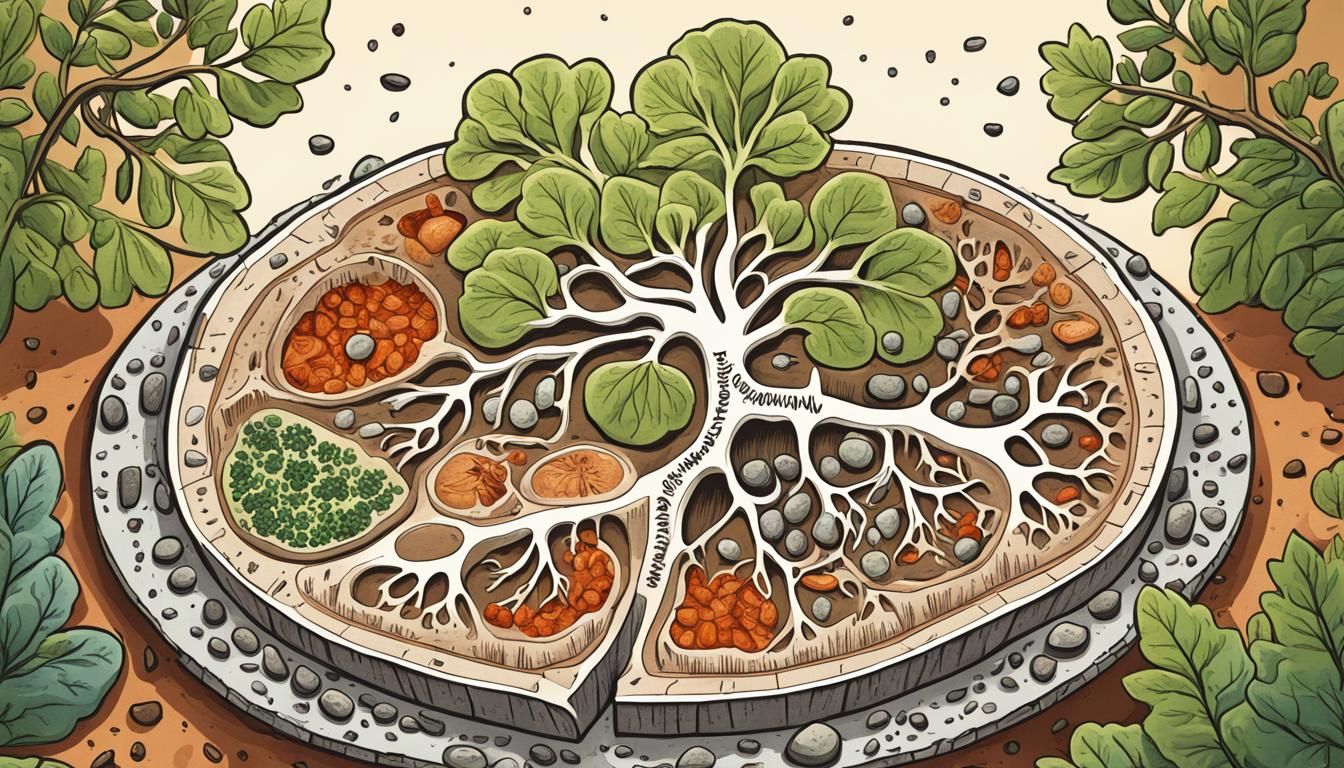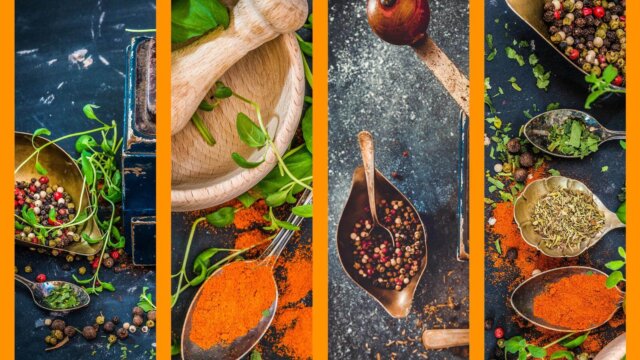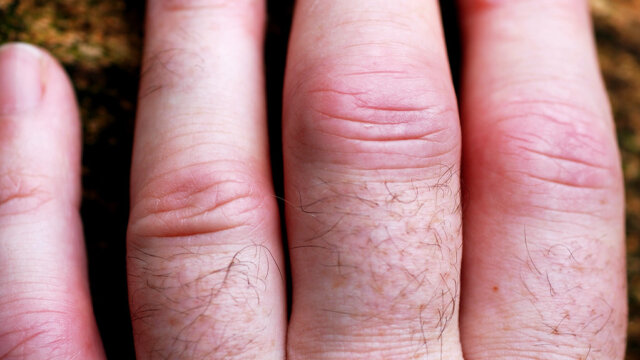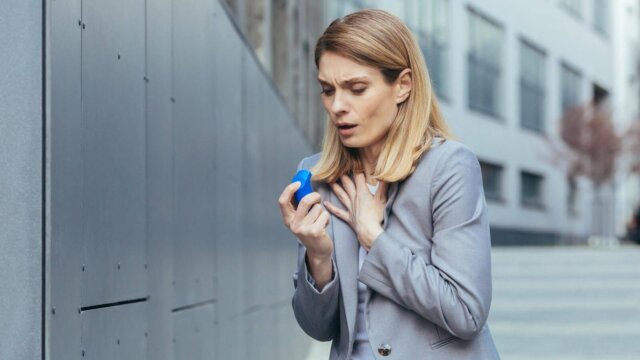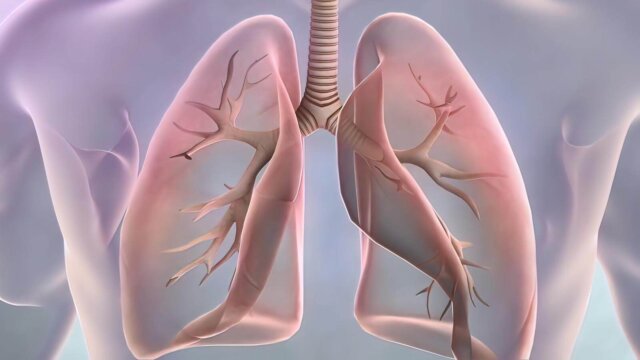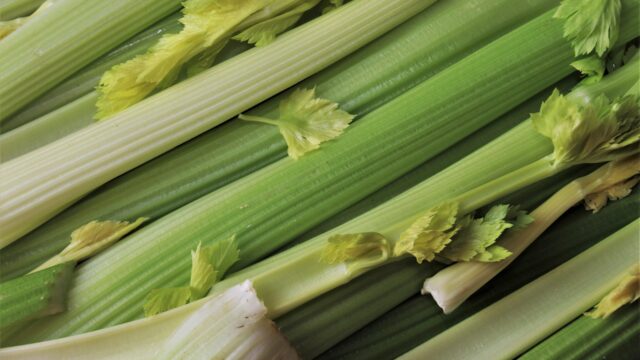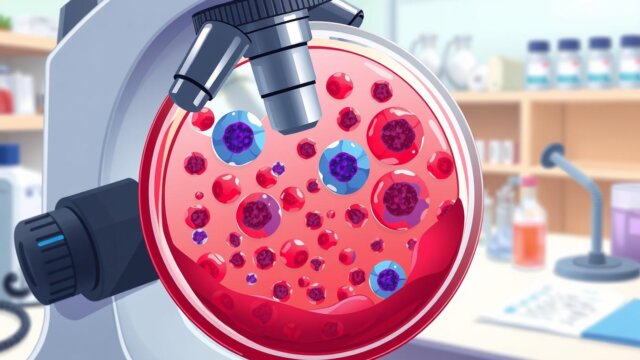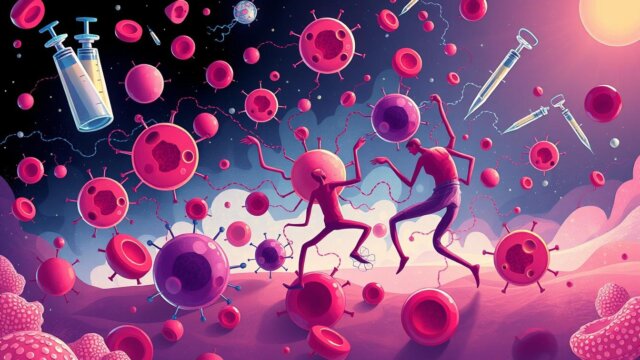FTC disclaimer: This post may contains affiliate links and we will be compensated if you click on a link and make a purchase.
About 12% of men and 5% of women in the United States will get a kidney stone in their lives. Kidney stones are common and cause a lot of pain. Luckily, there are many natural ways to help with kidney stones. We will look at these ways to reduce pain and help the stones pass naturally.
It’s important to drink a lot of water to avoid kidney stones. Not drinking enough water puts you at risk for getting them. Health experts say to drink 6 to 8 glasses of water each day to stay hydrated. This helps keep kidney stones away.
Key Takeaways
- Kidney stones are a common and painful condition that can be prevented and managed through natural home remedies.
- Staying hydrated by drinking enough water is crucial for preventing kidney stones.
- Dietary changes, such as limiting sodium, sugar, and alcohol intake, can help reduce the risk of kidney stone formation.
- Natural remedies like lemon juice, apple cider vinegar, and celery juice may help dissolve and pass kidney stones.
- Herbal supplements like wheatgrass, dandelion, and basil may also provide relief and support kidney health.
What Are Kidney Stones?
Kidney stones are hard deposits made of minerals and salts. They form in the kidneys. Sizes can vary, from a grain of sand to a golf ball. About 10% of adults face this health issue during their life.
Types of Kidney Stones
The most common types of kidney stones are:
- Calcium Stones: Calcium stones are the most well-known.
- Uric Acid Stones: Too much acid in your urine causes these.
- Cystine Stones: Cystinuria is a genetic cause. It makes cystine stones rare.
Symptoms of Kidney Stones
You might feel severe pain in your back, stomach, or groin with kidney stones. You could also have nausea, vomit, or see blood in your urine. While big stones may need help, smaller ones often pass without help.
If you have serious signs like bad pain, blood in urine, fever, chills, vomit, cloudy urine, or feel burning, see a doctor soon.
Causes of Kidney Stones
Kidney stones can form from different reasons. This includes what we eat, health issues, and how we live. Calcium oxalate stones make up 70% of all types. Not drinking enough water, eating a lot of salt and meat, being overweight, having diabetes, and taking specific drugs are all linked to kidney stones.
Difficulty with body minerals and salts, like calcium, oxalate, and uric acid, can also cause stones. If kidney stones run in your family or you’ve had them before, you’re at more risk. Also, some health conditions or surgeries might need medicines to increase citrate and lower the chance of stones.
Eating certain foods can either make kidney stones more likely or help prevent them. Too much protein, salt, and sugar are not good. But, adding lots of citrus fruits can lower your risk. Being a healthy weight is also key. And, drinking enough water, about 2.5 to 3 liters daily, does a lot to keep stones away.
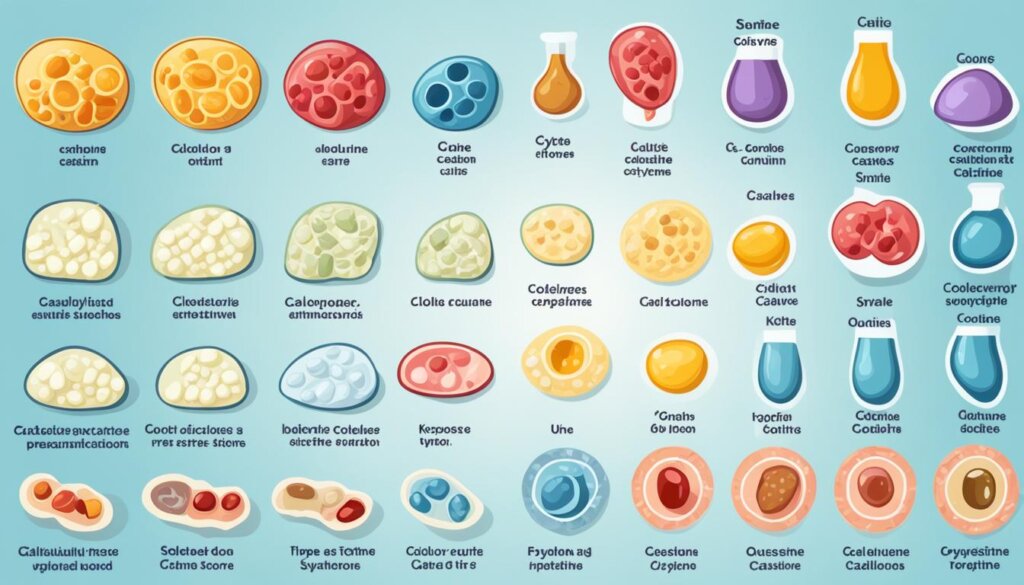
Some illnesses and drugs can mess with your chance of getting kidney stones. It’s wise to see a doctor to figure out what’s causing them for you. Together, you can make a plan to prevent and treat them.
Factors that Increase the Risk of Kidney Stones | Factors that Decrease the Risk of Kidney Stones |
|---|---|
|
|
Knowing what causes kidney stones is the first step. Then, acting to avoid those causes can really help lower your risk.
Staying Hydrated to Prevent Kidney Stones
Drinking enough water is key to avoid kidney stones. Not drinking enough water increases the chances of getting them. Over 500,000 people in the U.S. go to the ER for kidney stones every year. One in every ten people will have kidney stones at some point. By keeping well-hydrated, you lower your risk of getting these painful stones.
How Much Water Should You Drink?
To dodge kidney stones, aim for 2 liters or 8 glasses of water daily. But this amount might change based on your lifestyle and health. Drinking three to four liters of water every day is a good goal. The National Kidney Foundation suggests at least 2 liters (8 cups) up to 3 liters (12 cups) a day for best prevention.
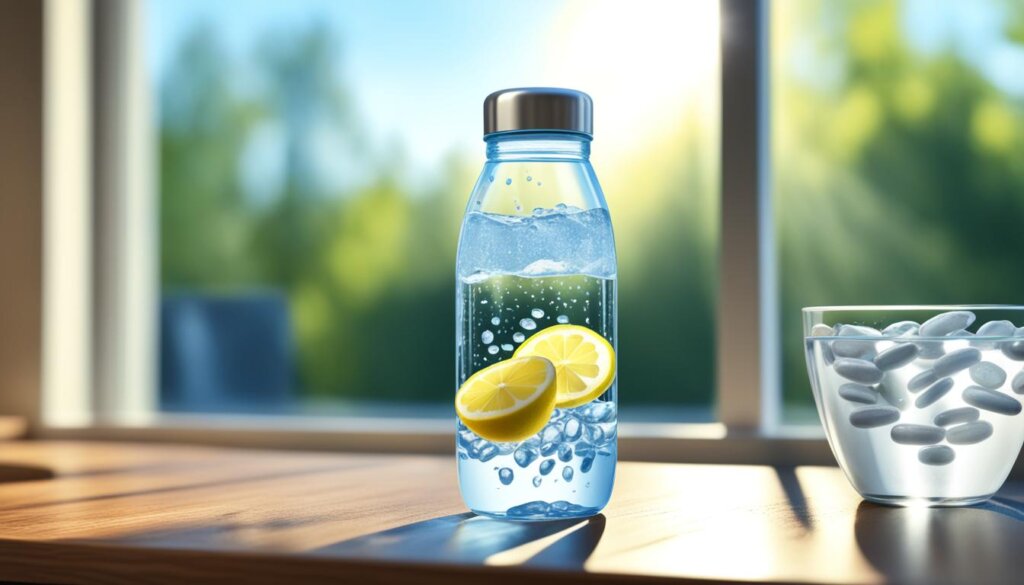
Be careful with what you drink. Certain drinks can up your risk of getting kidney stones. Avoid drinks high in salt, a lot of caffeine, and too much animal protein. By drinking lots of water, and watching what you eat, you’re on the right track to avoid these common health troubles.
“Drinking plenty of water is one of the best ways to reduce your risk of developing kidney stones. It helps flush out the minerals and salts that can build up and form stones.”
Keep in mind, staying hydrated and choosing your foods wisely can prevent kidney stones. Following these tips can help keep kidney problems at bay.
Dietary Changes to Prevent Kidney Stones
You can prevent kidney stones by changing what you eat. 90 percent of the time, diet and medicine stop new stones from forming. By choosing your foods carefully, you lower your risk of having these hurtful stones.
Foods to Avoid for Kidney Stone Prevention
Limit foods with lots of oxalate, like spinach, beets, and nuts. They can help stones to form. Also, eating too much sodium and drinking a lot of cola drinks, eating fast food, and processed meats isn’t good.
Foods to Include for Kidney Stone Prevention
Eat more foods with citrate to help break down stones. Lemons, limes, and oranges are great. Drinking water and adding more calcium-rich foods, like milk and yogurt, can also lower your stone risk.
Fruits and veggies are good for people who get kidney stones often. Have at least five servings a day. This gives your body the right nutrients to stop stones from forming.
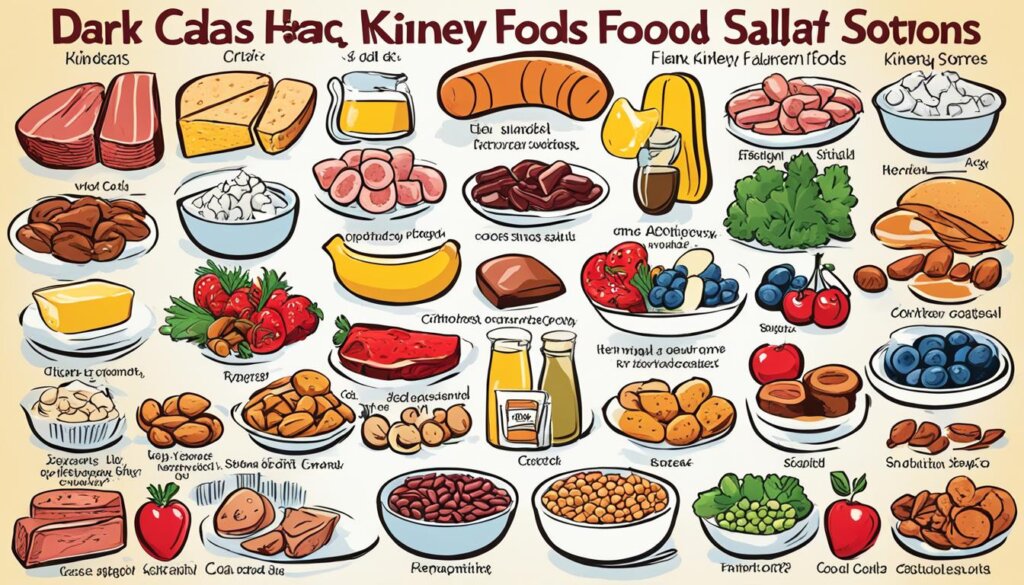
“Drinking two to three liters of water (at least 64 ounces or more) each day is recommended to prevent kidney stones.”
Eat less salt and animal protein to fight kidney stones. Drink plenty of water. Changing what you eat and staying hydrated is key. It helps avoid foods that cause stones and promotes the ones that help.
Lemon Juice for Kidney Stones
Lemon juice is a great natural way to help with kidney stones. It’s full of citrate, which stops calcium stones from forming and helps get rid of them.
Lemon juice can keep kidney stones from coming back. In a study, only ten people who took lemon juice got kidney stones again, while 22 others did. Also, less salt in urine was found in those who drank lemon juice.
Just mix the juice of half a lemon with water. Drink this 2-3 times daily to prevent stones.
But be careful with how much lemon juice you drink. Too much can harm your teeth or cause stomach problems. The safe dose is 4 ounces of lemon juice with 2 liters of water each day.
Before trying lemon juice for kidney stones, talk to your doctor. They can advise if it’s right and safe for you.
“Lemon juice is a natural remedy that can help dissolve and flush out kidney stones.”
Apple Cider Vinegar for Kidney Stones
Apple cider vinegar (ACV) is a natural remedy for kidney stones. It contains acetic acid. This acid can dissolve kidney stones. Then, they can pass out of the body. Anecdotes suggest ACV can treat kidney stones.
A 2016 study linked higher dietary potassium to less kidney stones. In 2017, a study found fermented vinegar lowers the risk of getting kidney stones. A 2014 study on animals showed ACV can protect against kidney damage.
How to Use Apple Cider Vinegar for Kidney Stones
Mix 2 tablespoons of ACV with 6-8 ounces of water. Drink this mixture daily. People who use ACV say it’s great for kidney stones. Drinking ACV regularly helps prevent new stones.
Another recipe is 2 tablespoons ACV, 1-2 tablespoons lemon juice, and 2 tablespoons olive oil. Also, mix 2 tablespoons ACV and ½ teaspoon Baking Soda in warm water. But, don’t drink more than one 8-ounce glass of ACV mix a day. Too much ACV can harm your teeth and cause heartburn.
Aside from ACV, you should eat healthily and drink plenty of water. This helps against kidney stones. It takes about 45 days for ACV to work on kidney stones. But, it may take longer for big stones. If you have diabetes, don’t use ACV. ACV is good for your liver and blood flow.
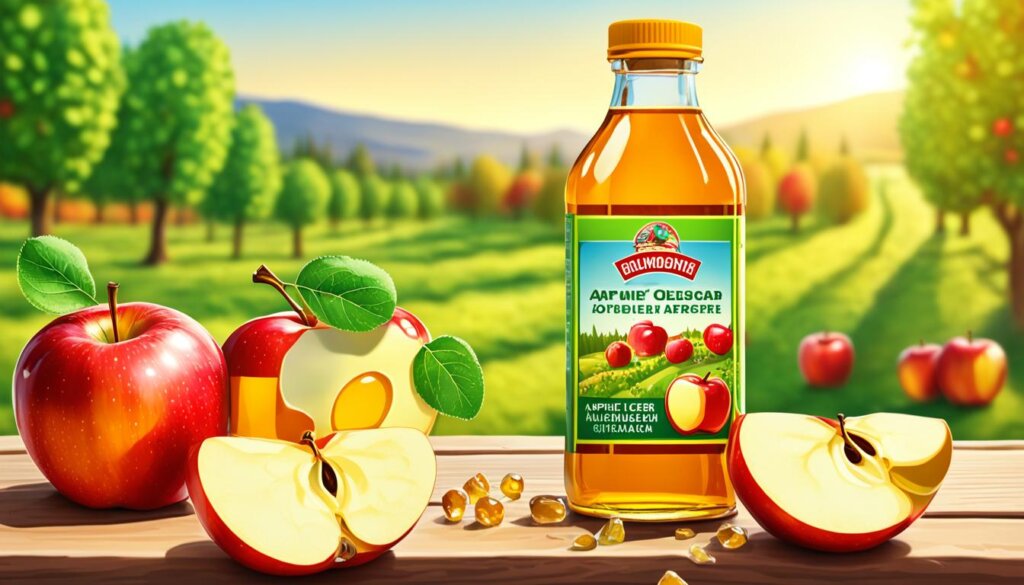
If you want to try ACV, talk to your doctor first. This is especially crucial if you’re on medication or have other health issues. A doctor can give advice tailored to you. They’ll help you use ACV safely for your kidney stone problem.
Celery Juice for Kidney Stones
Celery helps by making you pee more, which can stop kidney stones from forming. A study showed that women who ate more celery had fewer stones. Making juice with one or more stalks and some water is an easy way to get this into your diet.
Celery juice might remove harmful substances linked to stones. It’s been used as a home remedy for years. The juice has a lot of water, so it makes you pee more. This can keep your kidneys clean and free of stones. Celery also has good stuff like antioxidants. These and other special bits can lower swelling and keep your kidneys healthy.
To make the juice, mix a few celery stalks with water until it’s smooth. Drinking this every day, especially in the morning, could really help. Adding this juice to what you eat, drinking enough water, and eating right can lower your chance of getting stones again.
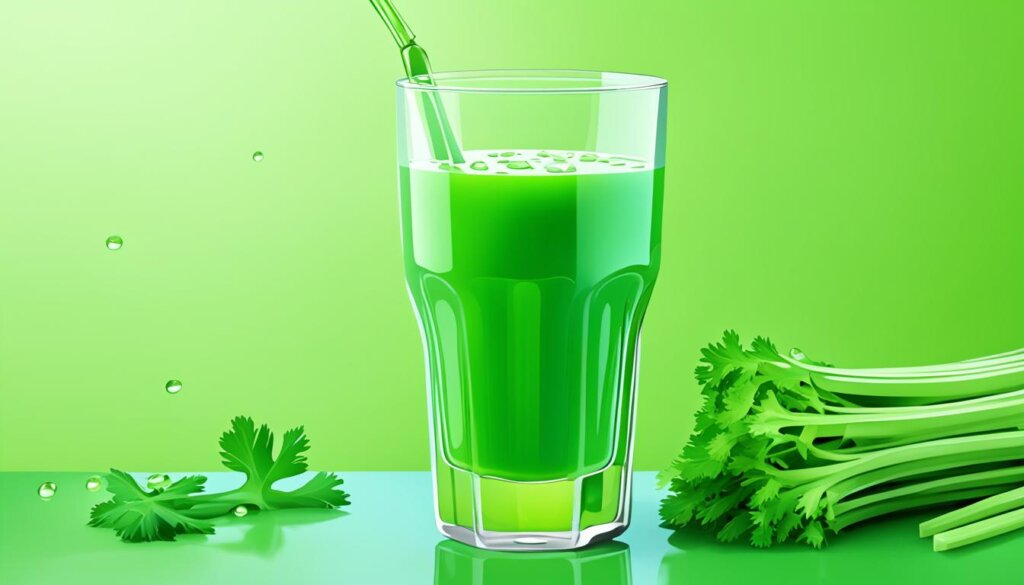
Even though celery juice can help, always talk to your doctor first. This is very important if you’ve had stones before, or have other health issues. They’ll give you tips that are right for you to stop stones and stay healthy.
Wheatgrass Juice for Kidney Stones
Wheatgrass is a powerful grass known for supporting kidney health. It’s shown in studies to work well against kidney stones. One study found that it could reduce stone growth by up to 88%.
Drinking wheatgrass juice might help your kidneys in a few ways. It can make you pee more. This helps push out any stones and stop new ones from forming. Wheatgrass is full of things like antioxidants and nutrients that are good for your kidneys.
“Wheatgrass juice can be a game-changer for those struggling with recurring kidney stones. Its ability to inhibit stone growth and promote the passage of existing stones makes it a powerful natural remedy worth considering.”
Add wheatgrass juice to your daily routine to avoid kidney stones. Drinking 4-6 ounces of it each day is a good goal. You can also mix wheatgrass powder into smoothies or juices for extra health benefits.
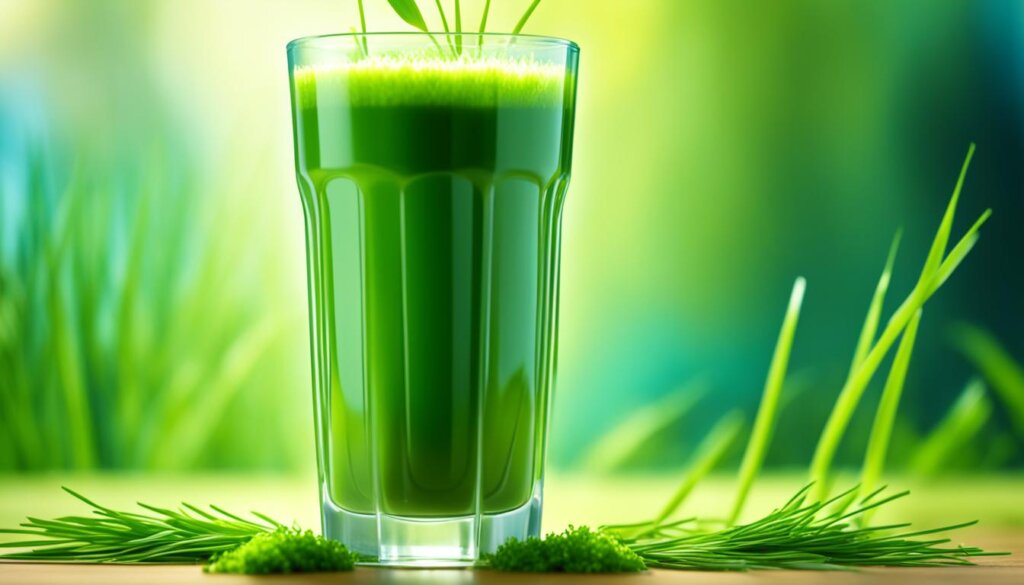
But, always talk to your doctor before trying any new remedy. This is especially important if you’ve had kidney stones before or if you’re dealing with other health issues. Your doctor can give you advice that’s just for you and check if the remedy is safe for you.
Dandelion Root for Kidney Stones
Dandelion root is not just a weed. It is getting noticed for possibly helping with kidney stones. It might have effects that help with water and digestion. This could stop kidney stones from forming and help deal with the pain.
Dandelion root is good for kidney stones because it makes you pee more. Drinking dandelion root tea makes you want to go more, pushing out tiny stones. The root has lots of water too. Staying hydrated stops stones from starting.
Some studies say dandelion root stops new kidney stones from forming. It might even help break down stones already there, so they are easier to pass. Having dandelion root tea or supplements could be a helpful part of your diet to fight kidney stones.
Potential Side Effects of Dandelion Root
Dandelion root is mostly safe. But it can have some side effects. It might not be good if you are allergic to things like ragweed. Also, it can change how some medicines work.
Before starting dandelion root, it’s wise to talk to a doctor. This is extra important if you’ve had kidney stones before. Or if you currently take any medicines. Your doctor can help make sure dandelion root doesn’t cause problems for you.
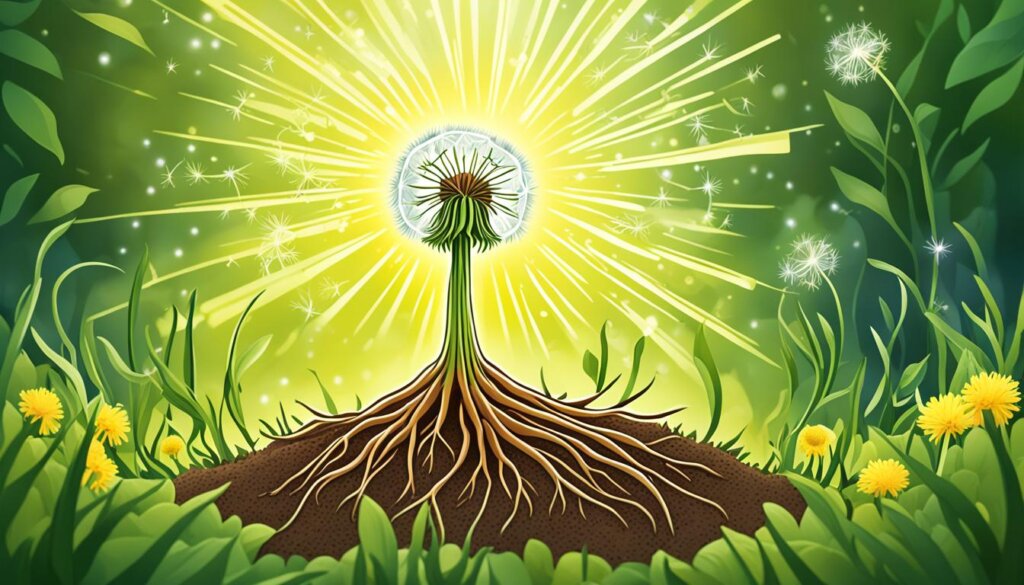
“Dandelion root is a natural diuretic that can help flush out small kidney stones and prevent the formation of new ones.”
Basil Juice for Kidney Stones
Basil is a tasty herb with possible benefits for basil juice for kidney stones. Studies show basil can help kidney health and lower the chance of stone growth. You can use basil leaves to make tea or juice them. Then, drink the juice often.
b>Basil juice has acetic acid. This acid can break down stones and lower uric acid levels. Basil’s power as an antioxidant and its ability to reduce swelling may stop stones from getting bigger and prevent new ones.
- Basil is high in acetic acid. This acid helps to dissolve kidney stones.
- Regular basil juice or tea can keep urine’s pH balanced. This lowers the stone risk.
- Basil’s compounds against swelling and antioxidants might lessen the pain of kidney stones.
Adding basil juice to your daily plan can help avoid kidney stones. You can juice basil leaves or make tea with hot water. Drinking basil juice or tea daily is good. It helps to remove existing stones and stop new ones from forming.
“Basil is a versatile herb that not only adds flavor to our dishes but may also offer valuable support for those struggling with kidney stones.”
But remember: Always talk to a doctor about kidney stone care. They can give advice tailored just for you. And keep up with a healthy diet and lots of water. Lemon juice and apple cider vinegar are also known to help against kidney stones.
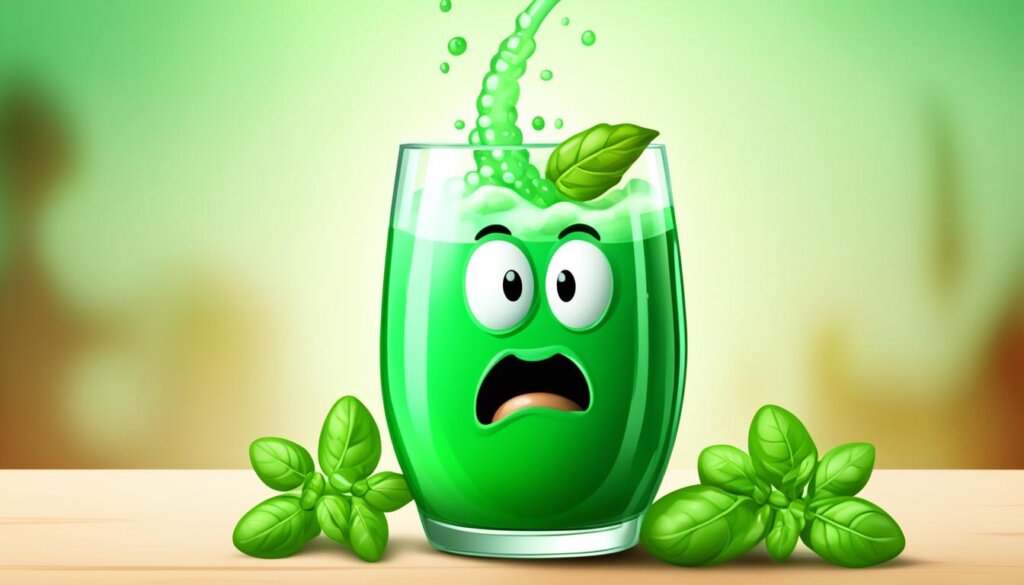
Kidney Bean Broth for Kidney Stones
Kidney bean broth has been a traditional dish in some places. But its use for treating kidney stones is still argued over. Some think drinking it can help break down kidney stones. Yet, there isn’t much proof from science.
Rajma, or kidney beans, are full of good stuff like protein and vitamins. They have vitamin B that might be good for getting rid of kidney stones. Boiling kidney beans to make broth could give these helpful things. Still, we need more studies to be sure it really helps with kidney stones.
Want to try kidney bean broth for kidney stones? You can make it by cooking kidney beans and drinking the liquid. But remember, this is just a home remedy. It’s not a replacement for what a doctor tells you to do. Always check with a doctor first, especially a nephrologist, if you plan to use any home treatments for kidney stones.
Staying hydrated, eating the right foods, and medical help are key for avoiding and treating kidney stones. While kidney bean broth might help, be careful. Always use it under a doctor’s advice.
Exercise for Kidney Stone Prevention
Taking part in physical activities helps stop kidney stones. It keeps your body weight in check. And makes your kidneys work better. This lowers the chance of getting stones. Stones in your kidneys can be tiny or as big as a golf ball. Being active can let small stones easily pass.
Best exercises for this are walking, swimming, and biking. These activities are good for stopping kidney stones. They also help you manage weight. This is key for avoiding kidney stones.
Along with exercising, other life changes are helpful too. Drink plenty of water. Eat a healthy diet. And be active every day. Doing these can keep kidney stones away.
The kind of exercise you do and how much you do depends on you. Just do some exercise regularly. It will help avoid kidney stones. Plus, it’s good for your whole urinary system. And cuts the chance of getting these painful stones.
Other Home Remedies for Kidney Stone
Staying hydrated and changing your diet helps with kidney stones. Several natural remedies can also be useful. They offer benefits like reducing inflammation and helping pass stones. But, be sure to talk to a doctor before trying herbs. They might not work well with your medications or could cause problems.
Dandelion Root
Dandelion root is known to make you pee more. This can help remove toxins, aiding in getting rid of kidney stones. It also helps lower the pain that comes with these stones.
Wheatgrass Juice
Drinking wheatgrass juice is thought to be good for kidney stones. It helps urine flow better and removes toxins, which can help get rid of stones. Adding wheatgrass juice to your daily routine might keep kidney stones from coming back.
Celery Juice
A study in 2019 found that celery juice breaks down kidney stones. It works by helping the body pass stones with its peeing and anti-inflammatory powers.
Even though these herbs might help, always talk to your doctor first. They will know what’s best for you based on your health and any medicines you take.

“Herbal remedies can be a valuable addition to a comprehensive kidney stone management strategy, but they should be used cautiously and under the guidance of a qualified healthcare provider.”
When to Seek Medical Attention
Natural home remedies work well for kidney stones. But if you have heavy symptoms, see a doctor right away. Heavy symptoms include strong pain, seeing blood in your pee, trouble peeing, fever with chills, and feeling sick all the time.
Kidney stones vary in size, from tiny to big. Tiny stones might go through your system on their own. But big ones need urgent care. Doctors use different ways to treat this, like shock wave lithotripsy. They can also do procedures to take out or break the stones.
Severe Symptoms of Kidney Stones
- Severe pain – Kidney stones mean a lot of terrible pain. Some say it’s one of the worst pains you can feel.
- Blood in the urine – Seeing blood in your pee means you might have a serious kidney stone issue.
- Difficulty urinating – A stone might block your pee and cause pain while trying to pee.
- Fever and chills – A fever and chills may mean you have an infection. This needs quick doctor care.
- Nausea and vomiting – Feeling sick and throwing up a lot can make you dehydrated. It might mean staying in the hospital for fluids.
If you have these bad symptoms, get help fast. Your doctor will decide the best way to treat you. This could be medicine, procedures to break the stone, or even surgery.
“Get medical help right away for kidney stones. No symptom is too small to ignore. If your symptoms are bad, see a doctor soon.”
Home methods might help, but expert medical care is key for bad kidney stone symptoms. Focus on you and getting the right care.
Conclusion
Kidney stones are tough, but using natural ways and changing your lifestyle can help a lot. Try to drink 8-10 glasses of water daily to lower mineral levels and stop stones from forming. Eating citrus fruits, using apple cider vinegar, and having more magnesium can keep you safe. And, it’s good to eat less of foods that have a lot of oxalates.
About 12% of all people get kidney stones. People aged 25 to 45 have a higher chance. Changing your diet, using herbs, and staying active are great ways to avoid getting kidney stones.
If you have bad or lasting symptoms, see a doctor. They can give the right treatment. With the best ways, you can stay in charge of your health. This way, kidney stones won’t bother you as much.
FAQ
What are the most common types of kidney stones?
The top kinds of kidney stones are calcium oxalate, uric acid, and cystine.
What are the symptoms of kidney stones?
Signs of kidney stones include strong pain in the back, stomach, or groin. You might also feel sick, throw up, or see blood in your pee.
What are the main causes of kidney stones?
They might form because you don’t drink enough water. Eating too much salt and animal proteins, being obese, having diabetes, or taking certain drugs can also be causes. Changes in mineral and salt levels in your body might lead to stones too.
How much water should you drink to prevent kidney stones?
To keep kidney stones away, drink about 2 liters or 8 glasses of water a day. But the amount you need can change based on your own health conditions.
What foods should you avoid to prevent kidney stones?
Stay away from foods rich in oxalates. For example, foods like spinach, beets, and nuts. They make it more likely for stones to form.
What foods can help prevent kidney stones?
Eat foods high in citrate to help against stones. Good examples are lemons, limes, and oranges. Taking more calcium-rich foods, such as dairy, might also lower your stone risk.
How can lemon juice help with kidney stones?
Lemon juice has citrate that stops calcium stones and can make small stones easier to pass.
How can apple cider vinegar help with kidney stones?
Apple cider vinegar has acid that can break down stones and help your body get rid of them. Remember, it’s best to use it carefully to avoid side effects.
What are some herbal remedies that may help with kidney stones?
Look into herbal options like dandelion root, wheatgrass, and basil. These may help as they have properties like being a diuretic, reducing inflammation, and stopping stones from growing.
When should you seek medical attention for kidney stones?
Get help if you’re in a lot of pain, see blood in your pee, have a fever, feel cold, or are throwing up. These signs might mean a serious problem that needs a doctor right away.
